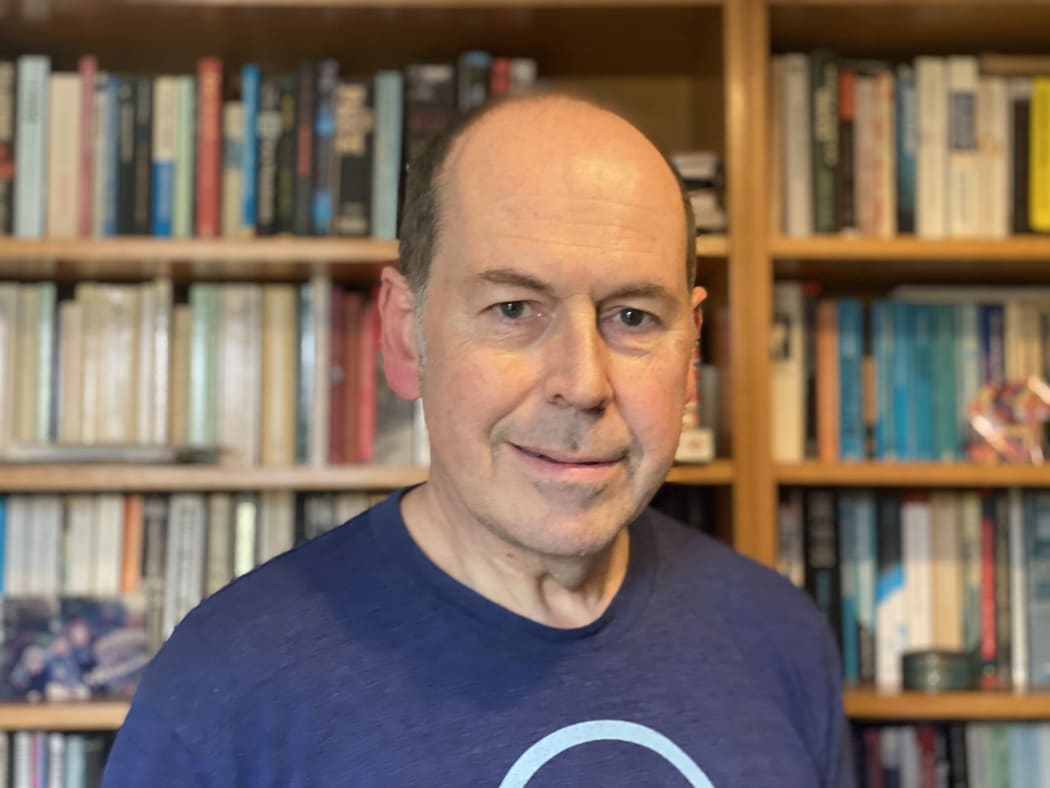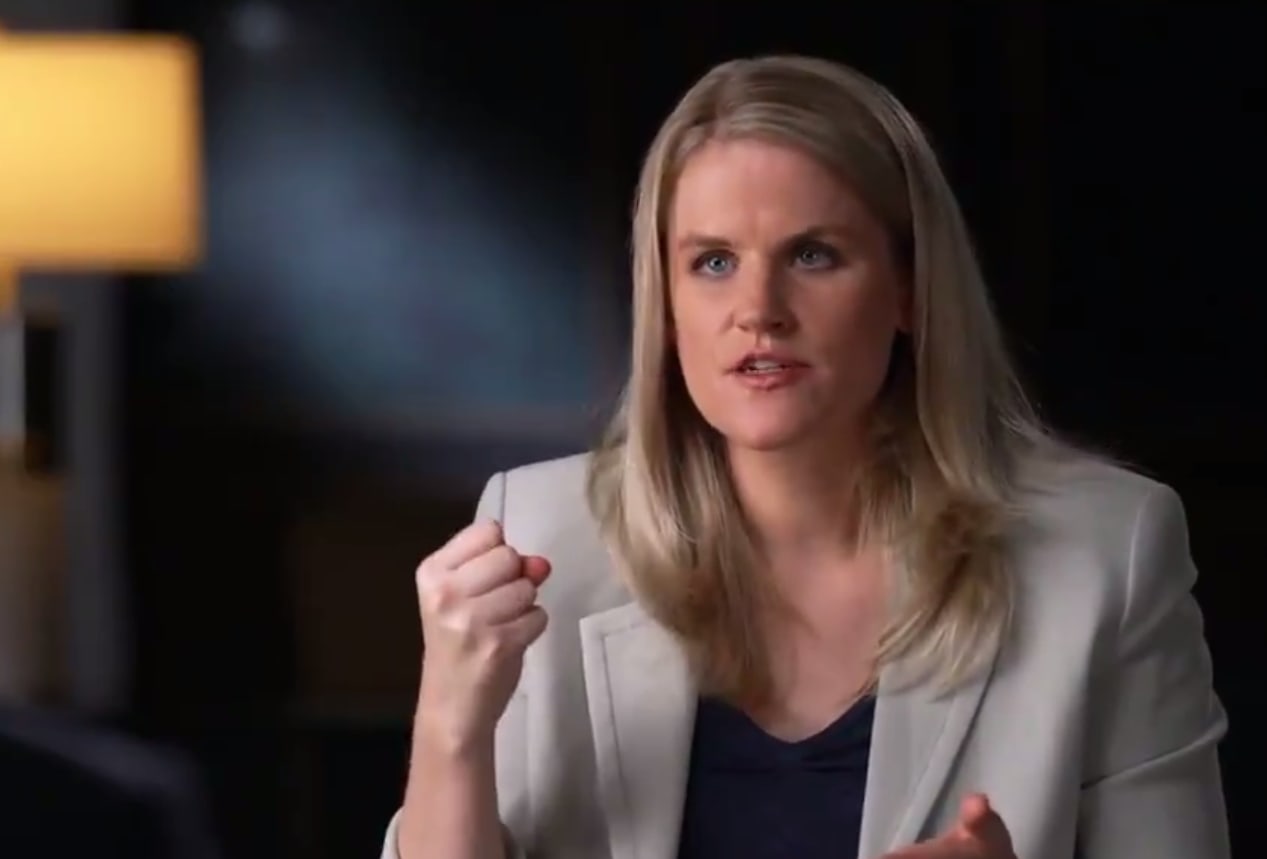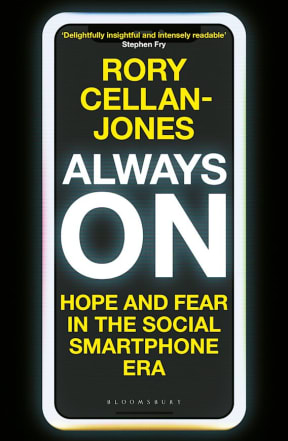Facebook’s all-powerful founder has rebooted his trillion-dollar company as ‘Meta’ and he’s planning for a new virtual ‘metaverse’ for us in five years. But the real world mess Facebook’s made in the past was recently compared to ‘Chernobyl’ by a respected AI expert. Rory Cellan-Jones has covered for the BBC since the time before Facebook. Where is all this heading?

Rory Cellan-Jones Photo: supplied
Earlier this month the all-powerful founder and CEO of Facebook - Mark Zuckerberg - gave the media a jolt when he suddenly rebranded the company as Meta and announced he’s building a virtual Metaverse for us all to live in.
The boss unveiled it in distinctly Zuckerbergian style: in a prerecorded and heavily-produced video in which he appeared as a cartoonish avatar of himself - at times even floating in space.
There were also videos released as part of the rebranding PR package featuring contrived chats between Mark Zuckerberg and his own employees.
Facebook even talks to its own people like this. A leaked internal video for US based staff who suddenly found themselves working for ‘Meta’ had HR staff bursting into song and dance and hailing the coming of the ‘Metaverse.’
But while Zuckerbeg and those at Meta’s top table wanted to point users and staf alike towards an upbeat new forward-facing vision, Vice.com’s take was: Zuckerberg Announces Fantasy World Where Facebook Is Not a Horrible Company
Whistleblowers including Frances Haugen made headlines worldwide with leaks showing Facebook failed to confront - and even suppressed - details of the damage it has done to its users by facilitating bullying, hate speech and misinformation.
“Worse than Chernobyl”

Former Facebook employee Frances Hougan lifting the lid on 60 Minutes. Photo: screenshot / YouTube
Delivering this year’s first BBC Reith Lecture, Berkeley AI expert Prof Stuart J Russell said that what was happening with Facebook was “worse than Chernobyl” as a wake up call.
In the audience was Rory Cellan-Jones - who this month retired after covering technology for the BBC since before Mark Zuckerberg founded Facebook in his university dorm room.
“I reported on technology for about 20 years, but I was officially named technology correspondent in 2007 - which was quite a good time to start I have to say,” said Cellan-Jones, the author of the recent book Always On: Hope and Fear in the Social Smartphone Era.
That was the year Steve Jobs unveiled the first Apple iPhone.
“There were complaints to the BBC when we put it on the nightly news that this was just a product launch. I stuck my neck out and said: 'Well, what about if the BBC had been around when Henry Ford unveiled the Model T. Ford?'That was the beginning of the age of popular motoring - and maybe this will be the beginning of another era.' And luckily, I was proved right,” he said.
“That turned out to be the single most profitable product in history and it launched this smartphone era, which we're seeing the consequences of even today,” he said.
“(AI) is a more much more powerful, much more immersive, much more interactive technology, which has its pluses, and definitely its minuses - and we've seen that in recent weeks, with what we've learned about Facebook, he said.
“It formed the social smartphone era, because it's the combination of those (social) networks with these brilliant devices. But we are seeing the damaging effects. But I see lots of positives to this technology, particularly highlighted by what's happened over the last 18 months where, frankly, those of us - like me - who've been locked in for long stretches wouldn't have been without that kind of connectivity,” Callen-Jones said.
Are they the baddies?
“Mark Zuckerberg has a track record of being - to be charitable, a bit late in recognsing the power of his platform and its capacity to cause harm. After Donald Trump was elected in 2016, he he just laughed at the idea that fake news on Facebook could have played any role in the election. He reminds me of the kind of the boy in the Sorcerer's Apprentice with the mops and the ever-rising tide of water, completely incapable of controlling what his creation has become,” he said.
“He has got almost unlimited power. He's not like any other chief executive. He's got a controlling stake and he’s unsackable.” he said.
“When I first met him in 2008, just four years in, I was foolish enough to suggest that he should have sold up when he was offered a billion dollars for the company. He was 24 years old at the time,” he said.
Now it’s a trillion dollar company.
In ‘Always On’ Cellan-Jones recalled an interview with Facebook executive Chris Cox and observed Facebook’s founders were not arrogant, but didn't feel the need for external advice.
Are Zuckerberg and co incapable of looking at themselves and thinking: ‘Are we the baddies’?
“Cox told me back in 2010, that Zuckerberg was like a man from the future, who comes back and tells us that everything's gonna be cool. And everything's gonna be awesome,” Cellan-Jones said.
“The trouble is we no longer believe everything in Facebook's world is quite so cool or awesome,’ he said.
Huge hold on news media

Mark Zuckerberg hyping up the 'Metaverse' Photo: screenshot / facebook
No one could have guessed back in 2004 how much this platform and people's social media habits would intersect with the news media and journalism.
Within a few years a lot of people worldwide were getting the most of their news news via Facebook feeds.
N ‘Always On’ Cellan-Jones says that early on quite a few people within Facebook reckoned the news feed wasn't a popular function - and some even suggested turning it off. But it quickly become a critical avenue for the news media and affected the viability of commercial media companies all over the world.
“News organisations are in a very difficult position because they know that this is the way to reach a huge audience, and they've got to be there. But Facebook policy can change in a moment,’ he said.
“A few years back Facebook said: "We're going to pivot to video” and news organisations started changing their workforces so that there were loads of people working on video and other people were kind of heaved over the side.” Cellan-Jones recalled.
“And then, after a few months, Facebook had a look and revealed rather guiltily that, actually, nobody's watching those videos. And all those news organisations which had made those big investments were in a hole and they couldn't afford to be. The huge problem, of course, is the imbalance of power,” he said.
Now we've seen Mark Zuckerberg himself - almost Steve Jobs-style - announcing the 'Metaverse' The videos and the presentation was ripe for mockery but do news media have to take this seriously and assume we could soon be operating in a kind of AI universe shaped by Mark Zuckerberg and his company?

Photo: supplied
“I do think we have to take it seriously, even though I share some of the skepticism. This is not a new idea. Second Life was a kind of virtual world . . . which didn't last long,” he said.
“But the truth is we are living more of our lives online - looking at our phones, WhatsApp-ing, Facebooking, Instagramming, TikToking,” he said.
“At the moment, it's a 2D experience and Mark Zuckerberg is saying is it will be a 3D experience and much more immersive. The trouble is you have to get people putting on a headset to do that. And so far, that has proved to be quite a niche activity,” he said.
“Without some huge technological breakthrough that makes it less clunky, how many people want to do that?” he asked.
Will there come a tipping point where governments and regulators say we cannot put up with one company with all this influence on the technology we use and and the habits that shape our lives?
“There'll be a lot of pushback at about Facebook, sorry, ‘Meta’ - running the Metaverse given its track record - and Mark Zuckerberg has very much been stressing this is going to be an open source, democratic space where no one company will have control,” he said.
“We'll see - because he has got a head start in this vision. I think regulators will have to be looking very closely at at his influence,” Rory Cellan-Jones told Mediawatch.


